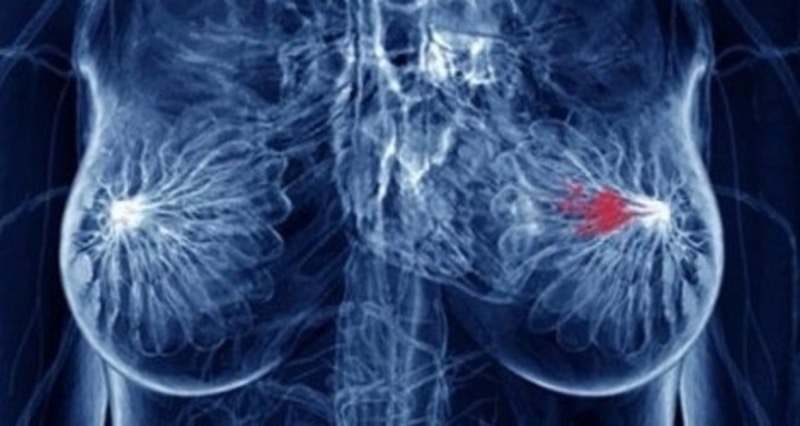Artificial Intelligence is no longer the stuff of Terminator nightmares. In the realm of cancer treatments – natural, integrative, or conventional – the AI research in cancer is opening eyes, especially among those studying breast cancer.
Researchers at Google, Northwestern University, and three British medical institutions have created an AI model that could be a game-changer. Study results show the AI model more accurately spots breast cancer in mammograms than doctors. Even more enlightening: The AI model detected breast cancer at higher rates than radiologists and reported fewer false positives. (1)
The American Cancer Society notes that clinicians fail to find about 20% of all breast cancers. Also, about 50% of American women are told they might have cancer when they are disease-free. (2)
Mammograms often find invasive breast cancer and ductal carcinoma in situ (DCIS), which are cancer cells in the lining of breast ducts that need to be treated. It’s also possible that some of the invasive cancers and DCIS found on mammograms would never grow or spread. These cancers are not life-threatening (and likely never would have been seen or treated if the woman had not gotten a mammogram).
The problem is that doctors can’t tell these cancers from those that will grow and spread. (Finding and treating cancers that would never cause problems is called overdiagnosis.) Because of this, all cases are treated. This exposes some women to the side effects of cancer treatment, even though it’s really not needed.
While AI cannot replace human experts, using it as a tool – a second opinion – is something doctors may embrace. Some radiologists may turn to AI as a means of accompanying their initial interpretation of a breast scan. Studies have found doctors may give differing diagnoses after eyeing early-stage lesions.
The ACS also notes the value of a mammogram depends on a woman’s overall health. Finding breast cancer early may not help her live longer if she has other severe or life-threatening health problems, such as serious heart disease, or severe kidney, liver, or lung disease. Women with serious health problems or short life expectancies should discuss with their doctors whether they should continue having mammograms.
It’s important to know that even though mammograms can often find breast cancers that are too small to be felt, treating a small tumor does not always mean it can be cured. A fast-growing or aggressive cancer might have already spread.
So, what do you do after being diagnosed with breast cancer? Bluntly, if you’re a minority, it could be a case of haves vs. have-nots. Literally, in the case of insurance.
Dr. Naomi Ko, assistant professor of medicine at Boston University School of Medicine, and Gregory Calip, assistant professor of pharmacy systems, outcomes and policies at the University of Illinois at Chicago, analyzed data from more than 177,000 U.S. women, ages 40 to 64, who were diagnosed with invasive Stage I to Stage III breast cancer between 2010 and 2016. (3)
The data showed minority women with breast cancer are less likely to have insurance, which could lower their odds of survival. The study found that whites were more likely to have insurance when they were diagnosed than blacks, American Indian/Alaska Natives, Asian/Pacific Islanders, and Hispanics.
Lack of insurance is a significant cause of delayed breast cancer screening and treatment among women in minority groups, the researchers noted. Being uninsured or underinsured accounted for nearly half of the gap in later-stage diagnosis between white and minority women.
www.2Cancer.com will evaluate an existing life insurance policy to possibly convert it into much-needed cash to pay for cancer treatment. Regardless of which treatment you choose, having the financial means to fight cancer is vital.
Citations
(1) AI can now outperform doctors at detecting breast cancer. Here’s why it won’t replace them. https://www.vox.com/future-perfect/2020/1/3/21046574/ai-google-breast-cancer-mammogram-deepmind
(2) Limitations of Mammograms. https://www.cancer.org/cancer/breast-cancer/screening-tests-and-early-detection/mammograms/limitations-of-mammograms.html
(3) Association of Insurance Status and Racial Disparities With the Detection of Early-Stage Breast Cancer. https://jamanetwork.com/journals/jamaoncology/article-abstract/2758266

